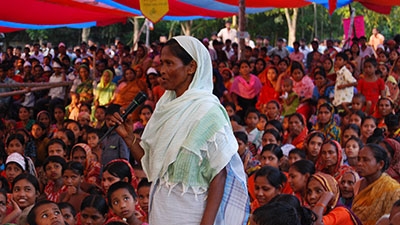Classrooms in the Kasungu district of Malawi bustle with the sounds of energetic students, but something is missing. There are no notebooks for the children’s exercise work! The district education manager had awarded a contract to a local company to deliver educational supplies to the schools, but the books never arrived.
Civil Society Education Coalition, a local group, tracked the expenditures in the district’s education budget and organized parents to report where the materials were missing. The Ministry of Education was able to take action because of the information received from the parents.
By engaging with civil society actors around social accountability mechanisms, governments are able to find solutions to difficult development challenges. Citizen feedback mechanisms can help improve the provision of basic services like education, health and water. It can also strengthen the quality of public expenditures and increase levels of transparency in government programs, which ensures that people have access to the necessary resources.
These are the kinds of governance issues that the Global Partnership for Social Accountability (GPSA) is helping to solve. And the GPSA just announced its first grants to 12 civil society organizations (CSOs) in 10 developing countries for a total of more than $9 million. The grants will build on the prior achievements of the CSOs and will fund projects in Bangladesh, the Dominican Republic, Indonesia, Kyrgyz Republic, Malawi, Moldova, Mozambique, the Philippines, Tajikistan and Tunisia. An additional grant was allocated to the Mexican CSO FUNDAR to develop the GPSA Knowledge Platform, to be launched later in 2013.
The GPSA supports civil society and governments working together to solve governance challenges in developing countries. It builds on the World Bank’s direct engagement with public sector actors, and a network of Global Partner organizations, to create an enabling environment in which citizen feedback is used to solve critical problems in service delivery and to strengthen public institutions.
“For these countries, the projects that the GPSA has selected will be crucial in addressing some of the fundamental challenges in various areas of development,” said Sanjay Pradhan, World Bank vice president for change, knowledge and learning and chair of the GPSA Steering Committee, which selects the grantees. “By encouraging increased transparency and accountability, these governments can provide better services to the most vulnerable people.”

